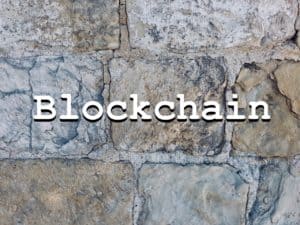 All venture capital is not created equal, especially when it flows into newer areas of technology such as blockchain, DAO Maker co-founder and CSO Hatu Sheikh cautions. DAO Maker creates growth technologies and funding frameworks for startups, while simultaneously reducing risks for investors.
All venture capital is not created equal, especially when it flows into newer areas of technology such as blockchain, DAO Maker co-founder and CSO Hatu Sheikh cautions. DAO Maker creates growth technologies and funding frameworks for startups, while simultaneously reducing risks for investors.
Sheikh said a truism startup founders often rely on to get through the rough patches is to never listen to criticism from people you would not accept advice from either. The people telling you it won’t work will always be there; if you are to move forward on your dream you will have to limit the advice you get.
VC funding is of course crucial for young businesses, Sheikh acknowledges. Citing a recent Crunchbase report, Sheikh said VC investment topped $634 billion and encompassed 30,000 deals in 2021 alone. In the first nine months of 2021$21.4 billion flowed into cryptocurrency- and blockchain-related firms.
With that money comes input, ideally from people with vast experience in the sector the business aims to succeed in, Sheikh said. Because blockchain is relatively new, that level of experience is rare. That can lead to poor advice, which hurts more companies than poor management or planning, he said, while referring to an article on Rayol Hwang in Nasdaq.
“According to research from Crunchbase, the average startup cedes about half of its ownership to its VC,” Sheikh said. “VC oversight can be helpful in some industries. But in the newly-emergent blockchain sector, where business best practices are still under debate, market evolution is constant, and complex technological ideas are foundational to every business conversation, it can be downright counterproductive. Veteran investors who aren’t well-versed in blockchain technology may provide well-meaning advice — which, of course, the founder is obligated to take — only to see it backfire.”
Blockchain innovators need time to forge new ground and create a foundation. But they are often rushed, Sheikh said, by interests pressuring them to scale before they’re sustainable. That says conventional VC investors are not equipped to deliver the unique guidance required in this space; they lack technical, detailed knowledge of blockchain while others take a one-approach-fits-all approach to growing a company.
If blockchain entrepreneurs cannot always rely on VCs, where do they go? Their user communities, Sheikh said.
“Blockchain communities overflow with potential. Within such a group, a founder might find people with extensive technical knowledge, those with operational insights, marketing experts, or retail investors with funding dollars to spare. If blockchain entrepreneurs can leverage their communities in place of conventional VC investors, they can pursue business growth without fear of being undermined by a single profit-minded party.”
Sheikh said blockchain technology itself allows the community to provide input through their votes and knowledge, provided one can efficiently corral that feedback. Decentralized autonomous organizations (DAOs) are a method of doing this. Eschewing central leadership, they make democratic decisions that are subsequently enforced on a blockchain. Those members can vote on any aspect of a company’s operation.
So far, most of the discussion around DAOs has centered around fundraising, but they can also be a method of soliciting collective expertise, Sheikh said.
“This concept has a name: social mining. Through trustless staking, up-and-coming companies can incentivize their community members to contribute to projects and otherwise use their skills to grow the business. Given its basis on the blockchain, social mining is fully automated and does not require costly overhead to function.”
Social mining capabilities are not naturally baked into DAO structures, Sheikh cautioned. Startups considering their deployment need additional tools to vet, categorize, train, and utilize community members as skilled contributors, but the benefits of doing so are worth the effort.
“For years, skeptics wrote off decentralized startups as a faint hope of overeager enthusiasts, a dream unlikely to ever intersect with reality,” Sheikh concluded. “But today, we have incontrovertible evidence that such businesses can exist, even thrive, in the modern market.
“No longer will innovative entrepreneurs need to compromise their autonomy and decentralized philosophy for the sake of funding. DAOs resolve the blockchain sector’s VC woes — and stand to utterly reimagine the role communities play in business development.”

